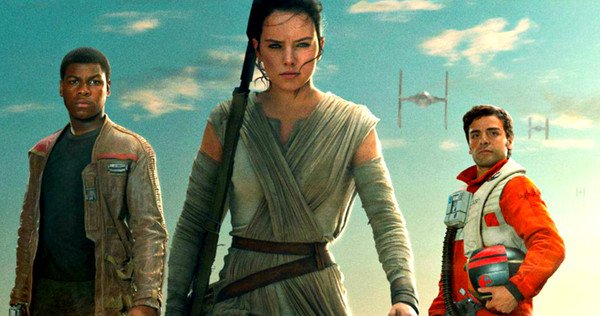Submitted by florin on
The movie has been criticized for the same things that make it a great dramatic story on its own. But there are good reasons for some of the choices it makes.
Warning: Encounter many SPOILERS, you will.
It must have been a strange holiday season for the makers of Star Wars: The Last Jedi. After a record opening week-end, the movie has taken a dive at the box office. I guess the expectations were high after a rather conventional but fairly promising opening movie in the new trilogy two years ago. But the opinions have been sharply divided. Cinema critics in general seem to give it good grades. Hardcore fans of the Star Wars saga, however, have pretty much rejected it en masse.
Whether the cinema pundits liked it or not has hinged entirely on the merits of the movie alone, so that was hard to predict before seeing it. But I'm going to argue that the hardcore fans were bound to be disappointed - it was only a matter of how exactly they were going to experience disappointment. Here's why.
Joseph Campbell's monomyth
The original Star Wars trilogy, released in the '70s and '80s was based, among many things, on a universal mythology. It's been called The Hero's Journey and it's the basis of many - nay, most - of the great stories that humanity has told throughout its history. From Osiris in ancient Egypt, to Prometheus in classic Greece, to Buddha, Mohammed, Moses and Jesus closer to our times, we seem to like hearing the basic outlines of the same story.
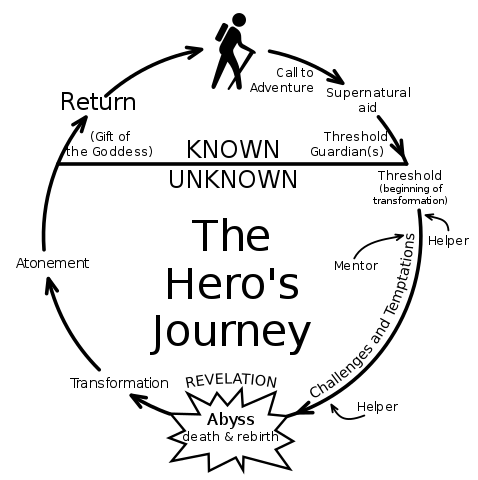
The hero hears the call to a great adventure. He may receive supernatural aid to help him along his journey. There will be guardians at the gates, and perhaps wise mentors to impart knowledge which will help him overcome the tremendous challenges he will face. There may come a point where the hero effectively dies, or suffers some great loss - only to rise again in his ultimate triumph over the opposition. Finally the hero returns with great gifts to humanity, the bounty that only he could have wrestled from the chaos.
Sounds familiar?
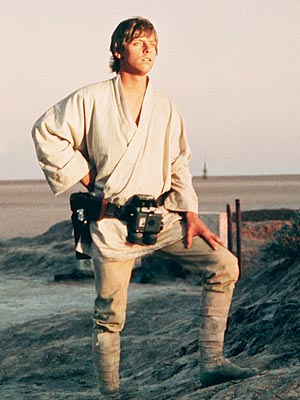
Well, it should, because we - the whole humanity - have heard this story told repeatedly, over and over again, in various disguises for thousands of years. For some reason we seem to deeply like it. And it's not surprising then that the original Star Wars trilogy seemed very compelling on some level - it was telling us what we expect and enjoy hearing.
Scholars like Joseph Campbell have spoken and written at length about this idea, but young George Lucas understood it intuitively, used it in his movies, and it worked just great.
The original Star Wars movies were mythology retold for modern audiences. This is only one reason, out of many, why they were so successful, but it's an important one. And here was the impossible choice that the new movies in the saga are facing.
Should the new movies re-tell the same myth all over again? They would be criticized for being repetitive. Should they tell a different great classic myth and clothe it in Star Wars regalia? That would not be Star Wars anymore. Or should they ditch classic mythology altogether? Then they would risk losing the visceral Force (pardon the pun) that powered the original trilogy.
It seems like ditching the old mythology is the choice that the new crew has made - and the results have been divisive to say the least.
The literalist reading
If the original trilogy is like the foundational book of some religion, then the folks who are steering the Star Wars ship nowadays are like those who read the book and decide it's all literal truth, down to the last iota. It's not mythology, it's reality. There really was someone called Luke Skywalker, who was not a literary symbol, but an actual person who went and did things, succeeded in some, failed in others. There actually was someone called Darth Vader, who was not Evil in human form but more like a Stalin (okay, so, speaking as someone who grew up in the Eastern Bloc, that's pretty much evil incarnate - but I digress) who did a lot of atrocities but ended up redeeming himself in the end (unlike Stalin - let's be clear on that).
And that's the thing with the literal interpretation. Those are real people with real strengths and weaknesses, not metaphors floating in the air. Real people are born, grow up, live their lives, then grow old and in due course die. And they're not perfect - they're flawed like everyone else.
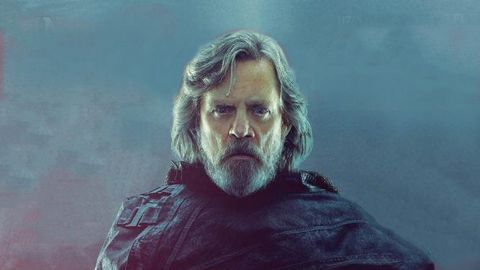
Mark Hamill has said that he disagrees with the choices the writers made for his character. And that would make sense when framed in the mindset of the original trilogy. But in the new movies Luke Skywalker is more like a real person, born with a rare gift, who accomplishes a very great feat (he's instrumental in bringing down emperor Palpatine), and then has decidedly mixed results in his later career. He's like Winston Churchill, great in times of war, not so great when things are calm and quiet - master Yoda, no less, tells him so, and he's like God's (or the Force's) own voice of wisdom in all these movies.
On the flip side of the Force, there's no metaphysical figure like a Darth Vader, either. Kylo Ren is basically an emo kid who was entrusted with a gift far beyond his ken. His psyche has more design flaws than the Death Star, his mind is built on a massive foundation of weakness - and he knows it. His story arc is just him trying to prove the Universe that he is not all that. That he's strong, and very much like his grandfather, Darth Vader.
At the end, Luke stops him with an illusion, a paper figure basically. You don't see how that could ever work against Vader. And yet, somehow, that elevates Luke's status. A flawed figure to be sure, Luke is still a great master of the Force - projecting his will across the galactic void is something no other character has accomplished before. He finally looks "cool", for lack of a better word, and awesome.
Meanwhile, Kylo Ren is smashing helmets in frustration, and can only defeat Snoke by subterfuge - he could not dare to win a direct confrontation.
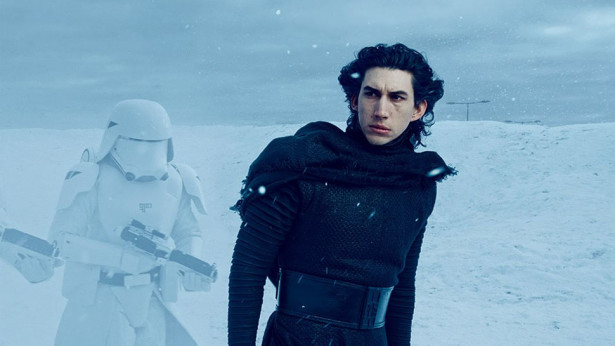
Hate this character if you wish, but Adam Driver is fantastic in portraying him. Every weakness, every insecurity, every hesitation - they're all clearly on display. There's no way the story ends well for him - if it's to all make logical sense, Kylo Ren is eventually going to get crushed by the burden of the gift he's not worthy of.
This is not the monomyth. This is not the hero's journey. This is very human drama. The latest movie delivers it in spades. But you can see why the die-hard fans would be disappointed. Because Star Wars, down at the very bottom, was modern mythology after all. Nowadays, it's become more like the trials and tribulations of the House of Skywalker.
Out with the old, in with the new
Since these are not mythologic figures anymore, but real people, they do what real people do: live, grow old, and die. The overarching theme of the new series so far has been that the old heroes are on their way out, to be replaced by the young ones. The next movie should really be called Star Wars: The Next Generation.
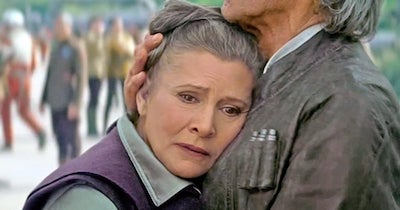
Han Solo has already died in the previous installment. Leia effectively hands the reins over to Poe at the end of this new movie - and since Carrie Fisher is no longer with us, her character's story arc will end soon too. And Luke himself dies in meditation, facing a grand, beautiful red sunset - they painted it with pretty broad strokes of the cinematic brush there, as if to make sure the point is driven home beyond any chance of missing it.
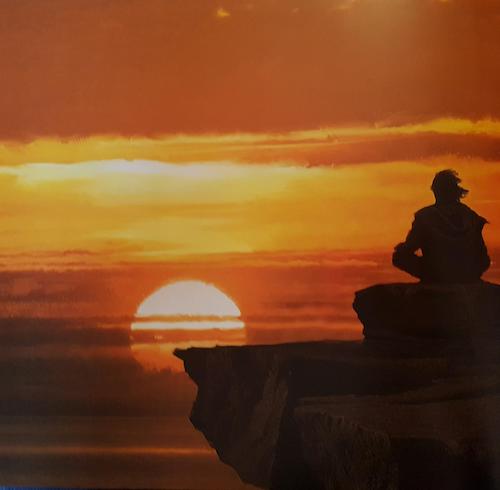
Meanwhile, the new generation is rising. Poe seems to be the next leader of the Resistance; while at times a bit of a loose cannon, he's very charismatic, and his strategic thinking is quick and works great in key moments. Finn and Rose spend a lot of time on a harebrained scheme, and are being chased by security guards in a casino in a long dynamic sequence, but it all works out in the end, and they are the symbols for a larger trend - common folks opposing the fascist New Order in every way they can.
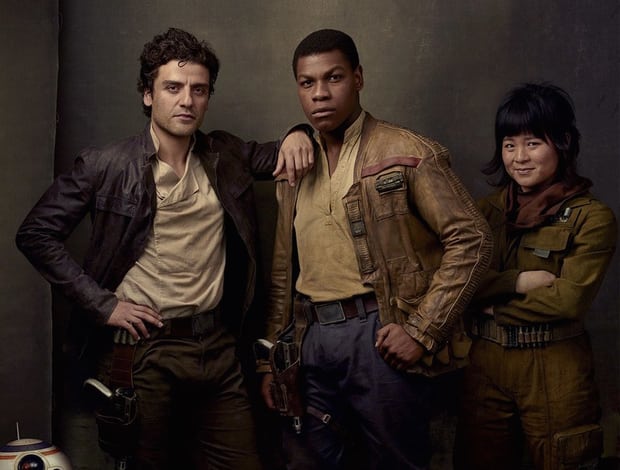
All could not be more clear. The old guard is riding off into the sunset, while the young upstarts are taking over. The story is turning a whole stack of fresh pages. You could see how the fans of the original movies might feel a little uncomfortable here.
A sea change of culture
The new movies are different in yet another important way. You could have watched a bunch of John Wayne westerns, and then walked into the next cinema to see the original Star Wars trilogy - and aside from the science-fictional frame, you would not have experienced a very large cultural shock. It's white men who drive the story in the original trilogy. There's a token black guy, but he's off in his cloud city somewhere, and there are some women occasionally caught in the camera but for the most part they're just tagging along. The hero is a white man, and his most effective companions are all men.
Not so in the recent installments. There's a black man who is a fairly important character and gets a lot of screen time. There are quite a few actors in The Last Jedi, as well as in Rogue One, who are of asian descent. And (dear Lord, imagine John Wayne watching this) there are women everywhere, in leadership roles as well as in the heated fire of battle.
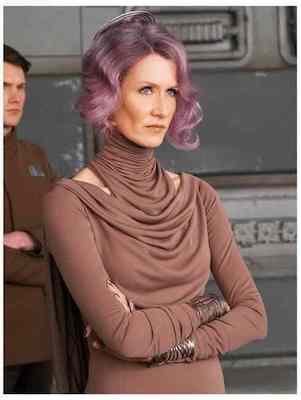
There's one key figure in the Resistance leadership who is a woman and basically saves the day when everything seemed to have gone completely wrong - and does that by sacrificing herself, ramming her ship at lightspeed into the First Order fleet; it's one of the most intensely dramatic moments in a movie full of intense drama, and she goes out willingly in a blaze of glory. Samson tearing down the house, the female version - appropriately, that's another old story upended by this movie.
There's also Leia, of course, who has grown into the role of leader of the whole Resistance. There are many other women involved in the war effort, piloting ships, throwing bombs, combatants in the war, as the opening sequence clearly shows.
And then there's Rey.
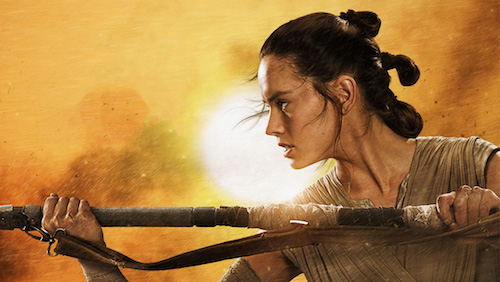
I am going to go ahead and declare that Rey is singlehandedly responsible for the fact that the old monomyth story would not have worked here at all.
Think about it for a moment. Osiris, Prometheus, Buddha - the ancient embodiments of the monomyth were all men. It's part of the evolutionary choices that our species has inflicted upon itself that it was men, historically, who took the great risks, went far away, and returned with a great bounty (or did not return - lots of them didn't). By the same token, it was women who stayed home and kept the fires burning and raised the kids while men went off chasing dragons. So while mythology does acknowledge the figure of the Great Mother, it was always a man who played the role of the Great Hero.
But the world is changing, and along with it the traditional gender roles are becoming less mandatory - and art is reflecting that. This, in a nutshell, is how you get Rey.
If you're part of the audience who, knowingly or not, bought into the original trilogy because of its mythologic undertones (and we all were that audience, back in the day), then you might have a bit of trouble adjusting to the new status quo. The story told here goes against thousands of years of archetypal instinct. This is a new story, an entirely new mythology for a new world. If you try to read it with a mindset that grew up in the past, it may not make a lot of sense.
This one "little detail", changing the gender of the main character, is what cascaded into everything else. The old Star Wars could not have functioned outside the traditional body of legends that we are all familiar with, that have a guy wielding the big sword, or bow, or bludgeon. The wielder of the scepter of power is now a woman, and that changes everything. You may see some of the same changes today, in the real world around you, of which art is merely the mirror and the metaphor.
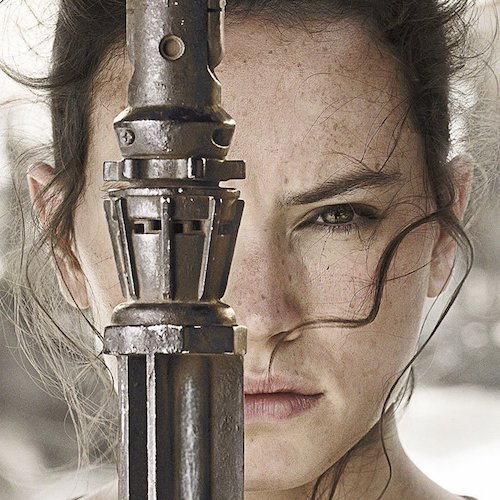
It is then perhaps fitting that one of the last scenes in Star Wars: The Last Jedi has Rey triumphant, in full possession of her powers, lifting the boulders that were blocking the exit at the back of the cave, saving the Resistance and allowing the story to continue. It is the same powerful image as Yoda force-lifting the ship out of the waters ("judge me by my size, do you?") except, of course, for that one little detail that turns the world upside down.
Cosmic scale drama
After all is said and done, was this a good movie?
I thought it was great. I am quite averse to drama - except when dramatic conflict has a good reason to exist and tells a good story. This movie delivered drama on a cosmic scale, not unlike the third episode in the original Mass Effect trilogy. There was little that I thought was gratuitous - except for Finn and Rose in the casino perhaps. There weren't many loose ends, with the one exception of the missing story of Snoke; but now he's dead so it doesn't matter anymore.
But was this a "real Star Wars movie", in the sense of inheriting the same archetypal space as the original trilogy envisioned by young George Lucas in the late 1900s? The answer to this question ought to be no. It takes place in the same fictional universe, but it's a different story for a different generation.
Luke Skywalker, taking the old lightsaber from Rey, then tossing it over his shoulder like a piece of garbage, makes that idea very clear. If you've missed that symbol then you've missed the whole point of the new series. The past is gone, thrown over the cliff towards the ocean. The old guard rode off into the sunset, and the young folks are taking up the mantle. It is their, and their viewers', own story now.
